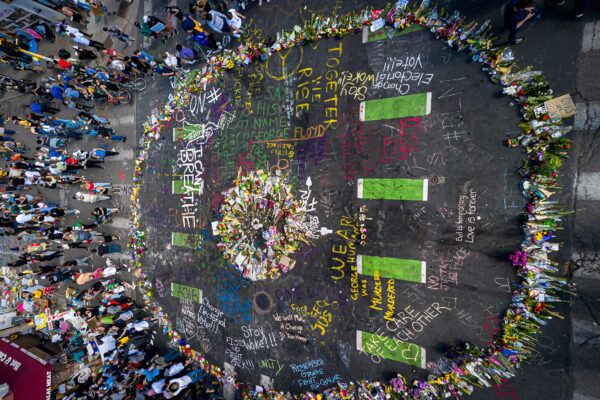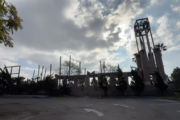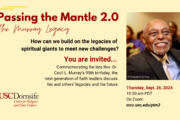Is Black Lives Matter a spiritual movement? In KCRW’s weekly podcast, Life Examined, Jonathan Bastian talked with Melina Abdullah, co-founder of Black Lives Matter Los Angeles and Professor of Pan-African Studies at California State University, Los Angeles, and Hebah Farrag, CRCC’s assistant director of research, about the role of the church, prayer, and rituals in the Black Lives Matter movement.
Here is an excerpt from the interview.
KCRW: When did you see this movement emerge as a spiritual movement?
Hebah Farrag: “So I’m going to step back and start with this question of BLM as secularizing the civil rights movement. Because I’ve seen this argument posed several times. And the question is often posed as ‘is BLM a spiritual movement?’
And I really believe when we pose the question that way, we’re ignoring what’s at the center of many progressive social movements like Black Lives Matter, which is the inherent nature of human dignity, and the duty to fight against injustice, and oppression that threatens that inherent dignity. Those are spiritual values that lie at the heart of almost all faith traditions, and are often formed based on religious, spiritual belief systems.
It’s the interplay of our spiritual beliefs and our politics where that’s formed. And it reminds me of a quote from civil rights activist Grace Lee Boggs; she said something like to make a revolution, people must not only struggle against existing institutions, they must make a spiritual leap and to have a deeper connection with their humanity. In order to transform the world, they must transform themselves.
I also believe that questions that point to the lack of faith in BLM movements tend to ignore the violent history of white supremacy embedded within institutions of traditional faith. That for example, stripped Black people of divine salvation. The violence at the hands of traditional institutions, forced conversion, native boarding schools, the vilification of native and indigenous and African belief systems, painting them as demonic, devil worshipping, criminalizing native beliefs to the point that entire Socratic belief systems were created to hide that belief like Santeria, and Voodoo. And to this day, practitioners often refuse to speak openly about those belief systems because of the persecution they’ve faced.
And in that frame, Black Lives Matter chapters and affiliated groups with the movement the reclamation and expression of Native and African spiritual beliefs and practices. It’s not just a spiritual act. It’s a radical spiritual act.”
Click here to listen to the full episode and read more excerpts from the interview.






